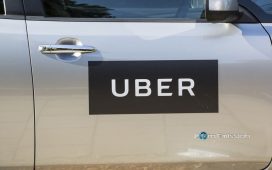If you take your hands off the wheel, you might crash.
That proverbial piece of advice, commonly leveled at business leaders and managers, has taken on a new meaning in light of the U.S. Department of Justice‘s (DOJ) investigation revealed Wednesday (May 8) into electric vehicle (EV) automaker Tesla’s Autopilot and Full Self-Driving (FSD) systems.
The EV giant, known for its innovative approach to automotive technology, is currently under the microscope of U.S. federal prosecutors, as well as the U.S. National Highway Traffic Safety Administration (NHTSA). The NHTSA wants Tesla to share more information related to its autopilot system after crashes continued occurring despite a December recall of more than two million vehicles.
At the heart of the controversies is Tesla’s Autopilot system, a driver assistance feature that has been available in Tesla vehicles for several years, and the more advanced Full Self-Driving package, which the company has been selling as an optional add-on. Despite their names, neither system can fully automate the driving process without human supervision, a point of contention that has raised questions about the accuracy of Tesla’s promotional materials and public statements.
The DOJ and NHTSA did not immediately reply to PYMNTS’ request for comment.
The implications of the federal investigations are significant, not only for Tesla but also for the broader automotive and technology industries. As companies continue to push the boundaries of autonomous vehicle capabilities, the outcome of this probe could set important precedents for how such technologies are developed, marketed and regulated in the future.
Read more: From Factories to the Fast Lane, Unpacking Autonomy’s Potential
Tesla Being Tested by Federal Investigations
During Tesla’s most recent earnings call, Musk described the car company as a next-generation autonomy and artificial intelligence (AI) platform, and not an EV manufacturer, and the CEO has become increasingly focused on self-driving technology as Tesla’s own car sales and profit slump.
The DOJ is reportedly investigating whether Tesla committed securities or wire fraud by misleading investors and consumers about its electric vehicles’ self-driving capabilities.
The term “wire fraud” typically refers to any fraudulent scheme to intentionally deprive someone of money or property using electronic communication or information technology. The rise of online commerce and electronic banking further expanded the opportunities for wire fraud, as criminals become increasingly able to exploit vulnerabilities in online payment systems or use stolen financial information to conduct fraudulent transactions remotely.
In the Tesla case, wire fraud would involve the company’s deception in interstate communications by misleading consumers about its driver-assistance systems.
The probes are just the latest obstacle for the EV pioneer, which has also been undergoing a headcount reduction designed to cut its workforce by 10%.
The company’s stock, which had been trading significantly down, jumped double digits on the news that Tesla plans to showcase its purpose-built robotaxi in August and that the company’s production was accelerating on a new, lower-cost Tesla model, PYMNTS reported April 24.
As the investigations unfold, Tesla finds itself at a critical juncture. The company’s response to the allegations and its cooperation with regulatory authorities will be closely watched by investors, consumers and industry observers alike.
Read more: Musk’s Master Robotaxi Plan: Giving Tesla the Uber, Airbnb Treatment
Navigating the Autonomy Landscape
Tesla isn’t the only company struggling with its autonomous vehicle (AV) offerings. As PYMNTS reported, in another example of the challenges facing the autonomous mobility sector, Hyundai-backed self-driving car startup Motional on Tuesday announced that it was delaying its driverless taxi fleet, explaining that “large-scale deployment of AVs remains a goal for the future, not the present.”
For comparison’s sake, Motional’s autonomous vehicles are rated as a Level 4 equivalent, while Tesla’s autopilot capabilities are ranked at just Level 2.
But that doesn’t mean there isn’t hope for the industry. On Tuesday (May 7), Wayve, a software startup focused on self-driving cars, raised a whopping $1.05 billion Series C round to continue developing a “GPT for driving” AI system that can empower any vehicle to see, think and drive through any environment by reimagining autonomous mobility through embodied intelligence.
On Wednesday, Daimler Truck unveiled a “demonstration vehicle” for an autonomous freight vehicle that has the potential to evolve into a modular, scalable platform that is propulsion agnostic for flexible use in different trucking applications — and is planned to launch in 2027.
“Together with Torc, we are making significant progress towards introducing autonomous trucks in the U.S. by 2027,” said Joanna Buttler, head of Global Autonomous Technology Group at Daimler Truck. “While we target autonomous trucks with conventional propulsion technology for this first market launch, we always look further into the future. We will employ an iterative approach to the development, testing and optimization of autonomous-electric technology, while exploring the most promising use cases in collaboration with our fleet customers.”











